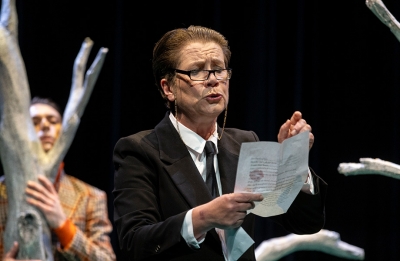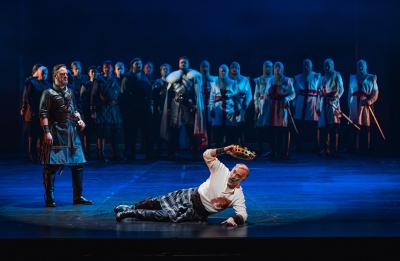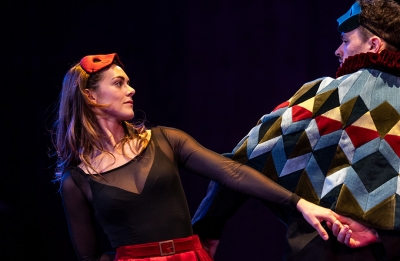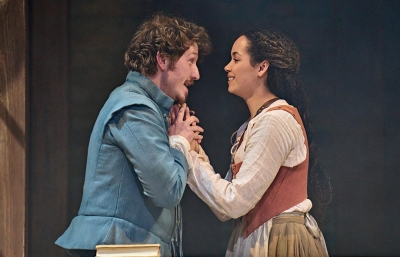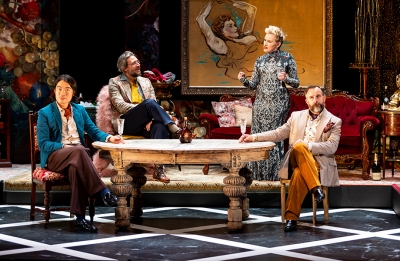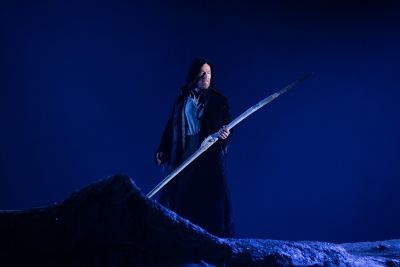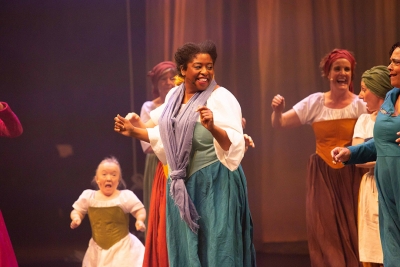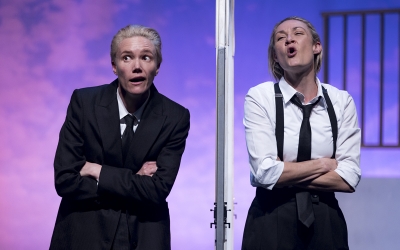William Shakespeare
Shakespeare’s Twelfth Night is a perennial favourite on the Shakespeare calendar (pun intended). The twelfth night of Christmas celebrations was the olden-day version of New Year’s Eve, not because it was the last day of the year but because it was the last day of festivities, with everything returning to normal after the hangover. As such, it was celebrated as a topsy-turvy night where homeowners would play servant to their servants and bring them gifts, with much frivolity and goodwill – a bit like the boss getting pissed at the staff party.
... (read more)During his five years as artistic director of State Opera South Australia, Stuart Maunder steered the company out of bleak times to some moments of genuine glory with a number of theatrically strong if mostly smaller productions. Among them, Sweeney Todd and Turn of the Screw stood out for their psychological realism, but he will also be remembered for having revived Richard Meale’s Voss in a highly successful semi-staged version in 2022.
... (read more)In many ways, William Shakespeare’s Julius Caesar (almost certainly 1599) is a director’s rather than an actor’s play. While there have been brilliant performances associated with it – from Marlon Brando and John Gielgud to Ben Whishaw and our own Robyn Nevin – it is really the directors who make sense of it on stage, and have moulded its politics to suit the times. John Philip Kemble and William Charles Macready defined the play in the nineteenth century, with elaborately realistic sets and massive crowds, emphasising Brutus as a revolutionary figure.
... (read more)It is a rare year that goes by without the publication of yet another new biography of William Shakespeare in response to the seemingly insatiable desire for insights into the life and mind of the great writer. The proliferation of life studies isn’t exactly unwarranted: among the most exciting recent discoveries shedding light on how Shakespeare lived is Geoffrey Marsh’s pinpointing of the address at which Shakespeare lived in Saint Helen’s parish in 1598, and Glyn Parry and Catheryn Enis’s identification of numerous writs against John Shakespeare until as late as 1583, when Shakespeare was still a teenager.
... (read more)Bell Shakespeare’s latest production of Shakespeare’s Romeo and Juliet (directed by Peter Evans) is punctuated by stand-out performances: Lucy Bell, as the Nurse to Juliet, steals the show early, with her accounts of Juliet’s birth and growing up; she lends warmth and a sense of time and place that allows this loving and loveable character to shine...
... (read more)'Emilia: A mock history of an Elizabethan poet' by Diane Stubbings
William Shakespeare is hiding behind a set of drapes. Wearing baggy black breeches, he is a buffoon, waggishly stalking his prey. His prey is Emilia Bassano, the young and (unusually for the times) educated daughter of a musician at the court of Elizabeth I, a woman who longs to be recognised for ‘how brilliant [her] mind is’. She wants to write and be published ...
One thing is certain: Shakespeare’s The Comedy of Errors is flat out hilarious, and if it isn’t funny enough on stage, it’s the fault of the production. His only farce, it is often thought to be an early work, but it is surely far too assured to be written before 1594. It’s entirely free of the striving Marlovian rhetoric that hampers the Henry VI plays (commenced in 1591), and it is cleaner, cleverer, and more convincing than The Taming of the Shrew (probably before 1592). It is based on Plautus’s Menaechmi ...
... (read more)

